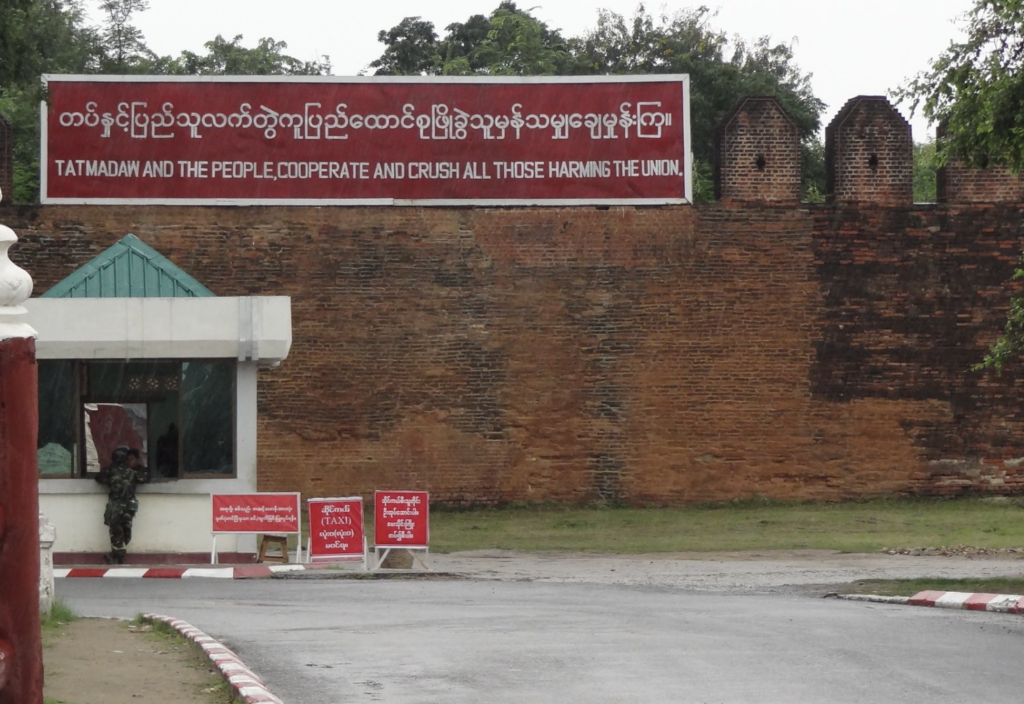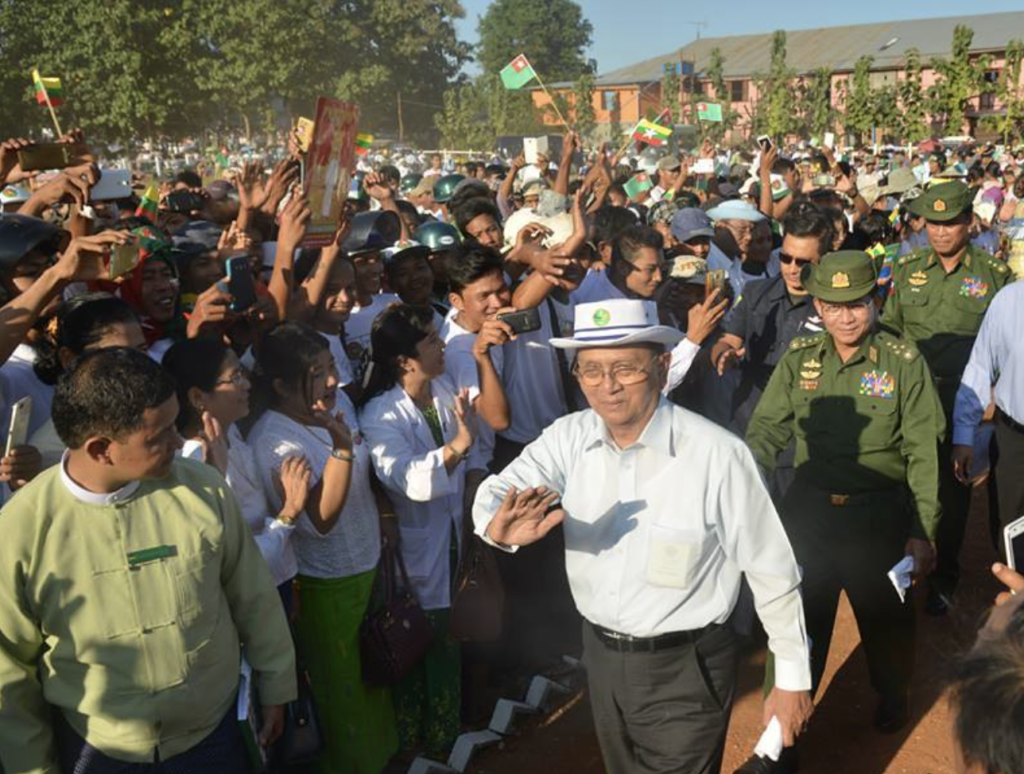by Farley Sweatman

Source: Adam Jones/CC Search
In the early morning of February 1, 2021, the Tatmadaw (the official name for the armed forces of Myanmar) staged a coup to reclaim its status as the sole source of political power in the country by arresting dozens of key civilian politicians, including de facto head of state Aung San Suu Kyi. The Tatmadaw declared a year-long state of emergency and transferred power to its commander-in-chief, Min Aung Hlaing, effectively ending the country’s decade-old experiment with democracy. Pro-democracy protests have sprung up across the country, prompting harsh countermeasures that have led to thousands of arrests and over 700 civilian deaths. In pursing this risky course, the Tatmadaw must now contend with international condemnation alongside growing protest movements that have paralysed the economy and endangered Chinese business interests.
The military takeover took place following a general election in which the Tatmadaw-backed opposition were soundly defeated by Aung San Suu Kyi’s ruling National League for Democracy (NLD) party. Claims of widespread voter fraud and a demand for a rerun of the election have been cited by the military as the official reasoning behind the coup. As negotiated under the 2008 constitution during Myanmar’s democratic transition, the military is guaranteed control over three government ministries (including defence) and 25 percent of seats in parliament (enough to theoretically block NLD lawmakers from amending the constitution to restrict the military’s power in the future). The NLD’s electoral victory would have solidified further civilian control over the political arena and thus threatened the military’s guaranteed hold.
There are, however, deeper motives behind the Tatmadaw’s actions. Its military leadership has long nurtured a form of “crony capitalism,” an economic system in which individuals and firms with political connections and influence are given unfair advantages. In Myanmar, senior generals and officers, operating through two giant military-run conglomerates – Myanmar Economic Corporation (MEC) and Myanmar Economic Holdings Limited (MEHL) – have been able to leverage the military’s coercive power to secure preferential access to key sectors of the economy, such as the lucrative jade mining industry. This vast network of commercial interests and holdings is essentially a mechanism to project military influence across the economy and reward members for their loyalty. In 2019, these military-connected entities came under threat when the NLD secured control over the general administrative department and began to introduce laws regulating the jade and gemstone industry. The elaborate patron-client system used by the regime to maintain power hinges upon the ability to accumulate and protect sources of wealth. This is the Tatmadaw’s bottom-line.
Stationary banditry
The military’s involvement in business first began after the socialist coup of 1962 as General Ne Win moved to nationalise the economy. During this time, Tatmadaw forces were required to be self-sufficient by developing interests in local enterprises to fund their operations. This practice was gradually phased out as the Tatmadaw abandoned the planned economy – only to be replaced with military-run, “crony capitalism” as the ruling junta began privatising state industries in the early 1990s.
MEHL was established by the Ministry of Defense in 1990. In its declared objectives, the stated aims are to provide economic welfare to military personnel, war veterans, and the general public. However, in reality, most of these profits are siphoned off to secure control and generate profit for the Tatmadaw’s senior leadership and allies. According to a leaked report by activist groups Justice for Burma and Amnesty International, MEHL paid its shareholders – all of whom are active or former Tatmadaw personnel – USD 16.6 billion worth of dividends between 1990 and 2011. Similar to its counterpart, MEC was established in 1997 with the declared objectives of contributing to Myanmar’s economy, reducing defence spending, and ensuring the welfare of military personnel. Today, both MEHL and MEC operate as holding companies with business in important sectors of the national economy, including mining, banking, manufacturing, and telecommunications, tourism, and transport.
Information on the revenues of MEHL and MEC is scarce and obscure. Neither company has made its financial reports available to the public, although both were exempt from income and commercial tax between 1998 and 2011. Much of MEHL and MEC revenue bypasses formal government channels, with billions of USD unaccounted for in the mining, forestry, and oil and gas industries. In the jade sector, for instance, investigations have determined that only a small fraction of jade is officially sold through the government-run Myanmar Gems Emporium – the rest, worth tens of billions of USD, being smuggled into China each year. Tatmadaw-owned resource companies and government revenue collecting agencies also publicly disagree on the tax figures paid by MEHL and MEC and their subsidiaries. This lack of transparency suggests that much of the revenue generated by military businesses in Myanmar is not captured by the State, and instead is funneled to subsidise military operations and enrich senior Tatmadaw officials.
Follow the money
The Tatmadaw’s commercial interests were present during the country’s democratic reforms. As Myanmar transitioned towards democracy and began to open its economy in 2011, the military junta quietly began the largest sell-off of state assets in the country’s history. The assets being sold included government buildings, port facilities, mines, factories, farmland, fuel import and distribution networks, and a large share in the national airline. The vast majority of these assets fell into the hands of senior generals and their families or businessmen allied with the Tatmadaw, cementing the position of a military-oligarchic ruling class in a supposedly progressive Myanmar.
Their arrangement with the newly installed civilian government proved ideal at first. Free rein over its business empire insulated the Tatmadaw from the accountability and oversight that would normally arise from civilian control over military defense budgets. At the same time, the Tatmadaw were content to let Aung San Suu Kyi and her civilian government, as the official head of state, take international criticism for the military’s human rights abuses against ethnic minorities like the Karen and Rohingya.
In 2019, this relationship changed when the NLD gained control of the general administrative department that oversees key bureaucratic appointments. The civilian government introduced a law intended to regulate the multi-billion-dollar gemstone and jade industry, which would directly affect hidden Chinese business interests and the country’s military-linked elite. They suspended the issuing of new or extension of existing gemstone licences pending a governance review designed to tackle corruption in the sector.
In doing so, the NLD crossed a line. Civilian oversight in the jade and gemstone sector would not, on its own, have broken the military’s web of commercial interests, but would have perhaps signalled a new wave of reforms targeting the military’s wealth. Forced to relinquish control over some of its lucrative businesses, the military would have struggled to maintain its system of patronage and retain its grip over the government administration. Thus, it comes as no surprise that the Tatmadaw decided to pursue the perilous course of staging a coup against a popular elected government. The NLD’s landslide victory over the opposition likely spooked many in upper echelons of the military, including Senior General Min Aung Hlaing. It appears that, to the Tatmadaw, it is worth putting its entire fortune on the line in order to protect its sources of wealth from potential reforms by the government.

Source: Prachatai/CC Search
A clash of ethics and money
Revenue generated by the MEHL and MEC serves to strengthen the Tatmadaw’s autonomy from elected civilian oversight, while providing financial support that sustains Tatmadaw operations. Weakening the Tatmadaw’s grip on Myanmar’s economy has so far entailed the following approach typically employed by Western governments: economic isolation by way of sanctions against Tatmadaw entities and individuals. However, this strategy proves challenging given the expansive Chinese and Russian business interests in the country. As the Tatmadaw’s two largest arms suppliers, China and Russia have a vested interest in maintaining the status quo in Myanmar and have consequently rebuffed efforts to condemn the Tatmadaw by other members on the UN Security Council.
A new approach is needed, one that espouses disengagement from Tatmadaw associated companies. Firms in Japan, Singapore, South Korea, and other countries still maintain commercial partnerships with MEHL and MEC. These links need to be targeted and severed by their respective governments through expanded sanctions. Moreover, Western governments must promote economic ties and engagement with non-Tatmadaw companies and businesses in order to strengthen the non-Tatmadaw sector of the economy.
As the current crisis deepens in Myanmar, uncertainties remain. Effective policy against the Tatmadaw may be difficult to implement in the short term so long as martial law continues across the country. If the military does indeed pull back and release the civilian government, this may embolden ethnic rebel groups on the periphery to rise up, thereby threatening the territorial integrity of the country and its status as a union.